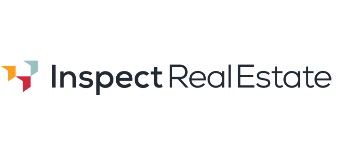Property management startup checklist in Australia
Beginning a real estate agency in Australia can be overwhelming, with numerous items to consider and arrange. However, don’t worry, our comprehensive property management startup checklist has you covered.
Learn more about IREOne
Real Estate Software for New Agencies
Here is the Property management startup checklist:
Obtain a real estate licence:
In order to operate as a real estate agent in Australia, you’ll need to obtain a licence through the relevant state or territory authority. This usually involves completing a certificate or diploma course in property services, as well as passing an exam and meeting other requirements such as a police check.
Choose a business structure:
Decide whether you want to set up as a sole trader, partnership, or company. Each structure has its own pros and cons, so it’s important to consider which one is best suited to your needs.
Register your business name:
You’ll need to register a business name if you’re operating as a sole trader or partnership, or if you’re using a different name for your company than the legal one. This can be done through the Australian Securities and Investments Commission (ASIC).
Obtain insurance:
It’s important to protect your business with insurance, including liability coverage in case of accidents or injuries, and professional indemnity insurance to cover any errors or omissions you may make while conducting business.
Set up a website:
A professional-looking website is essential for attracting clients and promoting your services. Make sure to include information about your team, your services, and any relevant experience or qualifications.
Advertise your business:
Consider using a range of marketing tactics to get the word out about your business, including social media, local advertising, and networking events.
Get property management software:
Properly managing your properties and clients is essential to the success of your business. That’s where Inspect Real Estate’s IREOne Start-Up Package comes in. This package includes all the property management software you need to get your agency up and running smoothly. Plus, with our user-friendly interface and comprehensive features, you’ll be able to efficiently manage your properties and clients with ease.
Ready to see how our property technology software can help your business thrive? Fill in the form below to book a demo and take the first step towards a successful real estate agency. So, these are some of the important points that you should consider while starting a property management startup in Australia.
IRE Powers Top Real Estate Agencies
Starting up a new agency & need software?
IREOne is perfect for startup agencies.
Book a FREE consultation now
Frequently Asked Questions
What are the legal requirements for starting a property management business in Australia?
To start a property management business in Australia, you will need to register your business and obtain any necessary licences and permits. You may also need to meet certain insurance requirements and comply with state and territory regulations. It is important to research the specific requirements in your area and consult with a legal professional if necessary.
How do I find clients for my property management business?
There are several ways to find clients for your property management business, including networking with local real estate agents, advertising through social media and online platforms, and using word-of-mouth referrals from satisfied clients. You can also consider offering promotions or discounts to attract new business.
What services should I offer as a property manager?
As a property manager, you may offer a range of services including managing rental properties, handling maintenance and repairs, handling tenant screenings and lease negotiations, and collecting rent payments. You may also offer additional services such as financial reporting and budgeting for property owners.
How do I set my fees as a property manager?
There are several factors to consider when setting your fees as a property manager, including the size and location of the property, the level of services you are providing, and the demand for property management services in your area. It may be helpful to research the fees of other property management companies in your area to get a sense of the going rate.
How do I handle maintenance and repair issues as a property manager?
As a property manager, it is your responsibility to handle maintenance and repair issues in a timely and effective manner. This may involve coordinating with contractors, negotiating prices for repairs, and ensuring that all necessary repairs are completed to a high standard. It is important to have a system in place for handling maintenance requests and keeping track of repairs.


